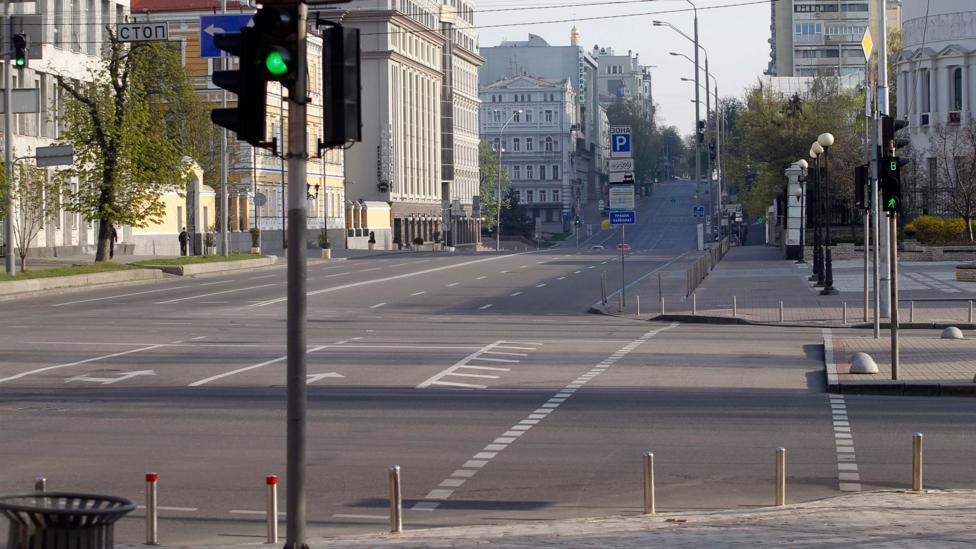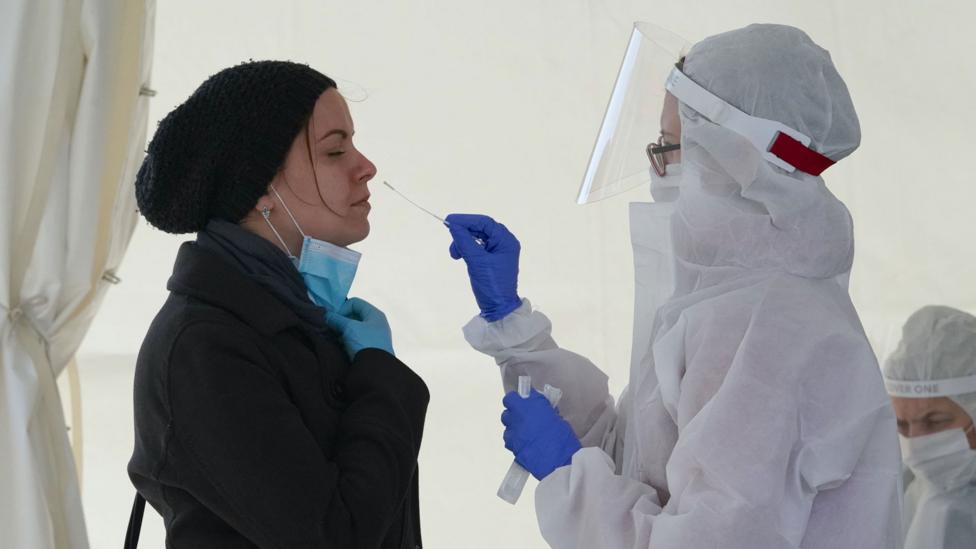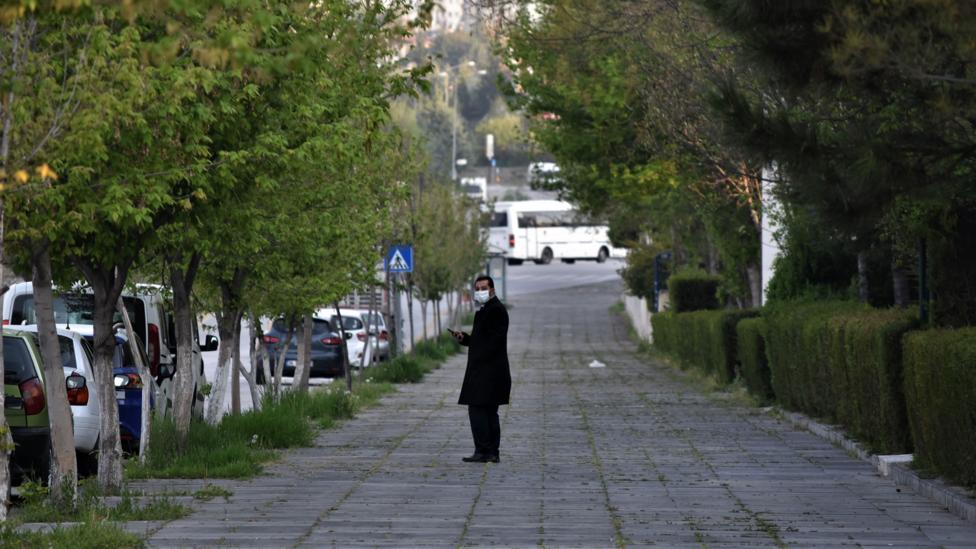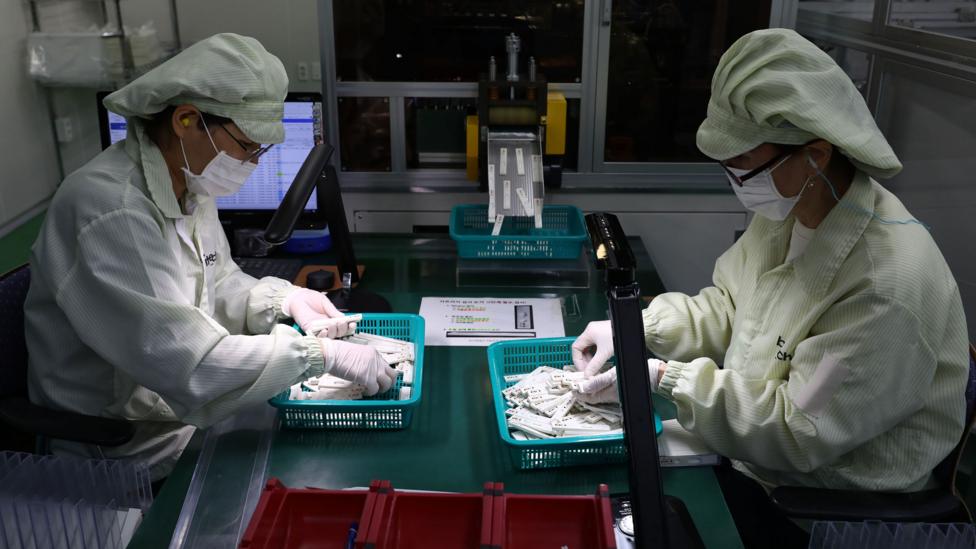- COVID19 has spread and researchers are fast pacing to develop a cure but knowing who are immune can be a key element to this fight
- With recovered patients testing positive again, there isn’t a surety of immunity.
- Much like the disease, immunity to depends on your genetic background and the viral dose you were exposed to.
- Since most cases are mild so the antibodies developed isn’t enough for a bigger viral dose.
- The antibodies in the body diminish over time and also there isn’t enough antibody to treat everyone.
- This is why plasma treatment can’t go on for a long time and can’t be done for a large number of patients.
- Scientists, say research is the only solution now and the key is that it’s still developing along with the pandemic.
The Exit Strategy
As the news of potential new vaccines and tests for Covid-19 developed by labs around the world seems to make the news each day, the optimists among us have started to look for signs that we might be moving towards the easing of lockdown restrictions in Europe and the US, following from the relaxing of measures in New Zealand and Australia. The phrase on everyone’s lips is “exit strategy”.
In the UK, the lack of communication from the government about their “exit strategy” has prompted criticism from the shadow cabinet, although scientists have warned that with no “good options”, publicising an exit strategy could be risky.
Antibodies: Determining Immunity of the Recovered
Much of the debate about how we might begin to lift restrictions has centred around the need for an antibody test. If we were able to tell who had been infected and had recovered, and if those people could demonstrate immunity against catching the virus again, could we begin to allow them to go back to work?
- This is dependent on a number of things, including developing a proven antibody test.
- Antibodies are proteins produced by the immune system to target a virus, bacterium or other pathogen. They destroy the pathogen by binding to it and making it harmless, or by flagging it for destruction by immune cells.
- Antibodies typically linger on in the bloodstream after infection, in case the virus returns.
- If it does, the antibodies are ready and waiting, which means immune response much faster – so much so that it might barely register as a second infection.
What this means is that convalescent patients – those who have recovered – have resistance to reinfection.
Can We Determine Immunity So Easily?
Unfortunately, it might not be as simple as that, the World Health Organization (WHO)’s Maria van Kerkhove warned over the weekend – and the reason has much to do with the fact that this is a virus that had never been in a human host until the end of last year.
Determining who gets the disease and why is really important, and in some cases it is the most important question. If no one was getting sick we would not have a concern – Katrina Pollock
“We are learning all the time about how it behaves and the disease it causes,” says Katrina Pollock, a senior clinical research fellow in vaccinology at the NIHR Clinical Research Facility at Imperial College London.
“When you are naive to the virus – you have not been in contact before – your immune system responds quickly with a first response, which is non-specific, to control the infection immediately,” she says.
Immunity Depends on Your Exposure & Genetics
How you respond in that first, non-specific reaction is based on the dose you received, your genetic background and how your immune system is already programmed to respond to new infections. These can all be affected by your general health and age – both of which seem to have a particular influence on the severity of Covid-19.
We develop flu-like symptoms to respiratory infections during this first, non-specific response. The fever, achiness and tiredness we feel, and the production of mucus are all general strategies our immune system employs to neutralise an infection. We try to make our bodies hostile to the virus cells by raising our temperature and deploying general virus-eating cells called phagocytes.
How Does This Work?
“As part of that response, part of the immune system gets programmed like software programming,” says Pollock. “The response is refined and replaced with a specific response. That specific response tries to completely clear the infection. Most of the time this can be done.”
This is called the adaptive immune response. Key to our adaptive response are two types of cells: T and B cells. “B cells are responsible for memory, they produce antibodies that are already specific to flu or cold antigens, that allows them to quickly bind with the surface of the virus to stop replication,” says Aikiko Iwasaki, a professor of immunobiology and molecular, cellular and developmental biology at Yale. T cells destroy virus-infected cells completely.

Understanding how our immune systems respond to infection with Covid-19 is thought to be key to formulating an exit strategy (Credit: Getty Images).
For most viruses, then, the first time you catch the infection your body takes a little time to develop the requisite antibodies, but you should be better equipped to fight off the infection a second time.
That is the theory, although in practice we don’t know how people might react to reinfection with Covid-19.
What does research reveal?
- One recent paper looked at reinfection in rhesus macaques, who, after being infected with the virus once, were not able to catch the infection a second time.
- However, the macaques were exposed to a standard dose of the virus, meaning the researchers predetermined how much of the virus the monkeys should get.
How the exposure rate determines immunity?
In reality, the dose that you might receive varies depending on whether you breathed in airborne particles or, say, touched a contaminated surface and rubbed your eyes,
as well as factors such as how close you stood to an infected person, and how long the virus had been outside of another host, and a whole multitude of other factors.
If someone were only exposed to a small dose of the virus in the first instance, who can say how they might react if the second dose were much greater.
“It is unknown why some people have mild infections, but one potential factor that can influence them is the exposure rate,” says Iwasaki. “We have done experiments in mice with exposure to influenza; just 10 viral particles can cause asymptomatic infection, but no immunity. But up to one million viral particles cause the production of antibodies, they are immune. There is a dose response.”
It’s also unclear whether having a stronger response will leave you any better off. “It is sometimes the case where if you have a strong reaction you might have immunity persist for longer but it might also be the case that those people are not able to respond to infections as easily,” says Pollock.
The hope is that a recovered patient has developed enough Covid-19-specific antibodies to fight off a secondary infection.
- However, in one study on convalescent patients in China, 30% of those studied had very little or no detectable antibodies in their blood plasma.
- It would seem that those people were able to neutralise the infection without the need to develop antibodies, either because their innate immune response or the T cells in their adaptive immune response, or a combination of both, were sufficient.
- Those with the lowest counts of antibodies were most likely to be the youngest patients.
Antibodies are not the only answer – Aikiko Iwasaki
“We don’t know why the people recovered but I suspect it was because they had a very good T cell response.”
The sample size in this study was small, so whether that ratio of convalescent patients with and without antibodies scales up to the larger population remains to be seen.

The first time a person is infected with Covid-19, it will take their body a while to make antibodies – but these might help to prevent a second infection (Credit: Getty Images).
What does this mean for plasma treatment?
If some convalescent patients are able to recover without developing antibodies, it leaves a big question mark over one of the proposed short-term treatments.
- Some infections can be treated with blood plasma transfusions.
- A small amount of blood from convalescent patients is extracted, stripped of red and white blood cells, clotting agents and the other things that you find in blood until only the serum, containing antibodies, remains.
- These antibodies are known to be effective against the virus because they have come directly from patients who have recovered from the disease.
- This treatment has existed for a long time. In fact, the first Nobel Prize in Physiology or Medicine was awarded for the development of serum therapy as a treatment for diphtheria. Blood plasma transfusions from convalescent Covid-19 patients are currently the subject of clinical trials in the UK.
Problems in Plasma Therapy
The reason that plasma transfusions cannot be a long-term solution is that, unlike vaccines, the treatment cannot be scaled up and rolled out to the whole population.
One patient might donate 200-500ml of plasma. Like with giving blood, this can be exhausting, invasive, is recommended only for otherwise healthy patients and takes some time to recover from.
Iwasaki says 200 to 500ml “is a really large volume,” says Iwasaki. “It is a lot of plasma to take from one person.”
One patient might be able to donate their serum to a couple of other people, but no more than that. And over time the antibody count in the serum will drop.
On top of that, if only 70% of convalescent patients develop antibodies, your pool of potential donors decreases further.
This treatment will be best-done in hospitals where there are a large number of potential donors, but might be tricker to administer to patients who are in remote places or recovering outside of hospitals, like those in care homes.

Some scientists have suggested that social distancing might be required until 2022 (Credit: Getty Images).
How long can you remain immune?
The other consideration when discussing immunity is the length of time that someone might remain immune for. Winter flu vaccines have to be re-administered each year, in part because over time your flu antibody count drops. Most of us are repeatedly exposed to the viruses that cause the common cold, so our antibody counts are topped up each year. “With time they might not be replaced,” says Pollock. “Being re-exposed is like getting a wake-up call to make more of them.”
If for any reason we are not exposed to them for a period of time, or our immune system is weakened, we feel those familiar cold symptoms.
- There is no reason to think that Covid-19 will not act in the same way – being fought off when our antibody counts are high in the medium term and causing us symptoms when they drop in the long term or when our immune systems are vulnerable.
- Although, again, Iwasaki and Pollock stress that we do not know definitively, and some have suggested that it could take years for this kind of immunity to become prevalent.
- A paper published in Science last week suggested that social distancing might still be required until 2022.
What we learned from similar outbreaks?
There is also a limit to what we can infer from previous coronavirus outbreaks. There is still no effective vaccine for either Mers or Sars, and instead stringent public health measures were necessary to contain the outbreaks.
While social distancing measures are effective in containing Covid-19, they have not been fast or efficient enough to stop its global spread.
Can A Recovered Patient Return To Work?
Is a convalescent patient clear to go back to work? “It depends on when you get clearance of the virus [and are therefore not infectious anymore],” says Pollock.
“A PCR test [one that relies on detecting the virus’ genetic material] cannot distinguish between live and dead viruses.”
Although in all likelihood, anyone who has recovered will only continue to test positively for the virus for a short period of time.
Those dead virus particles would be destroyed and removed from the body shortly afterwards.

Scientists are currently trying to figure out if Covid-19 patients develop enough antibodies to stop them being infected twice (Credit: Getty Images).
Checking if a person still has symptoms is not a good measure either. A paper in the journal Nature found that patients continued to shed the virus after symptoms ended.
A PCR test, which has to be done in a lab, is the best way to know who is infected or had been infected until very recently. But the complicated science around immunity is why the WHO has cast doubt about how useful antibody tests might be.
Immediate Reassurance Not Possible
“There are many reasons why antibody testing might be a problem,” says Iwasaki. “One is sensitivity. The test might be negative because the test is not sensitive enough, even with highly sensitive tests 30% of patients have no antibodies [according to the paper published on Medrxiv]. Antibody count alone is not a good measure of immunity protection – only one proxy for immune response.”
But the main thing to emphasise, says Pollock, “is that the research is happening at the same time as the pandemic is unfolding and it is not possible to give people the information they want immediately”.
Did you subscribe to our daily newsletter?
It’s Free! Click here to Subscribe!
Source: BBC























